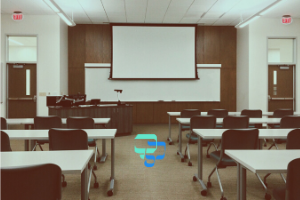
The week the government closed British schools was one of the most challenging of my life. Sudden, difficult decisions had to be made that were unthinkable the previous week. Solutions Not Sides has been ten years in the making and we were building momentum towards a target to reach critical mass, meaning that 30% of an entire generation of British young people engaged in the Israel-Palestine issue would emerge by the 2030s equipped with the knowledge, attitude and skills to counter hatred and build a better future in collaboration with their peers from across a variety of backgrounds, beliefs and identities.
Then the very arena in which we operate, the school classroom, shut its doors for what might be months. This, combined with the probable longer-term economic impact upon our work, meant I had to face the possibility that this situation might result in the closure of our doors as well – a closure that could be permanent. After all, there are charities out there that are tackling the most fundamental and immediate human needs at the base of Maslow’s hierarchy that should take precedence during this kind of crisis – we are neither feeding the hungry nor healing the sick.
It is important, however, that Solutions Not Sides does what it does best - support and engage the young people and the educators who guide them through the challenging period. It is also equally important to remember that although it is by no means always the case that the closing of one door leads to the opening of another, the creative and hopeful human mind will instinctively start to seek for a crack of light in a dark situation.
In 1989, the World Wide Web (WWW) was born. This momentous invention was one of the key drivers to launch us into the Digital Age. Like a strong current its possibilities surged into our daily reality, bringing with it both opportunities and risks. It created a direction of travel for our global societies from which there is no turning back.
Human nature, however, is neophobic and cautious. Of course, we would never wish to lose entirely our in-person connection with one another. Yet perhaps due to a fear that this might happen, much of our interaction when it comes to gathering for work meetings or education has remained a physical occurrence in a specific location.
But this tendency has, in many ways, created a kind of ‘dam’ that since 1989 has only allowed the current to trickle through in a very controlled and limited manner. Hence travel time and resources continue to be spent on ensuring that meetings, events and classes still mostly take place within the familiar four walls in an age-old format (albeit with an upgrade from the blackboard to the smartboard).
Enter Corona, and suddenly we can’t travel, we can’t gather, and we can’t meet for a coffee. Within a mere couple of weeks, the pressure of that current, which has built up behind the dam of our disinclination has reached such a degree that it is about to break and we are the water that will flow freely into a future of complete connectedness, towards which this current will carry us. I’m referring to something very different from social media. This temporary period of social distancing in the physical will lead to social bonding in virtual space.
The quantitative scale to which we can take humanising experiences of understanding others and shared processes of critical thinking has just vastly augmented. With the downfall of the dam wall, our financial resources will be spent on relationships instead of room rental, our time will be spent talking instead of travelling (which will also help save the planet) and our societies will see the solution for our sickness of segregation. For as well as neophobia, we sapiens are endowed with curiosity and a capacity for compassion that, when given the chance, will lead us to reach out to one other.
I’m fearful, too. Being unable to physically be together is a strain that has confirmed we must never let such an extreme reality become the norm. After this experience, I am certain that it never will, and that we will establish a balance that still provides for this need. The turmoil of the last few weeks has been like nothing I’ve known in my lifetime, and the lives that have been and will be lost due to this pandemic are a terrible tragedy.
Yet amid the exhaustion, struggle and grief of this crisis comes a kind of liberation for our cause. Instead of just one Israeli and one Palestinian person stepping into a British classroom, the ‘classroom’ itself could become multi-national, multi-cultural and multi-lingual and we will play our part in progress down that path. We will still continue with our visits to schools but once this is over, the virtual space will also remain open to us for the continued meeting of people who will still define themselves as unique individuals but will feel themselves to be part of a global, interconnected whole that has the potential to take humanity forward with mutual sympathy and solidarity into what will now truly become the Digital Age.